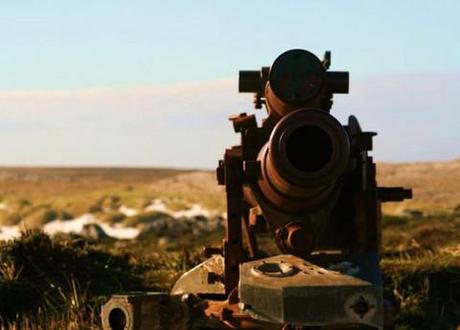
Gypsy Cove, Falkland Islands. Photo credit: Chris Pearson, http://flic.kr/p/4DWb95
Prince William has arrived in the Falkland Islands as tensions heat up between Britain and Argentina over the disputed territory. Thirty years after the Falklands War that saw the islands returned to British control, a war of words has broken out between the two countries. Argentina has described the arrival of the Duke of Cambridge as a “provocation” and called him a “conqueror”, with Argentine officials insisting the UK government is trying to distract the British public from the economic crisis by reigniting the Falklands conflict. US Defence Secretary Philip Hammond has denied the claims, said the BBC, and insisted the Prince’s six-week RAF tour of duty is merely “routine”.
The situation has been further inflamed by the release of Margaret Thatcher biopic The Iron Lady, reported The Telegraph, which includes scenes of the then-PM during the Falklands War. And the Argentine government has also accused the UK of trying to “militarise” the dispute by sending destroyer HMS Dauntless to the area.
Britain has held sovereignty over the Falkland Islands since 1833, but this has been strongly disputed by Argentina. UK Prime Minister David Cameron likened Argentina’s claims to the territory to “colonialism” earlier in the year, prompting a furious response from Buenos Aires. Argentine President Cristina Fernandez de Kirchner has repeatedly asked for talks to discuss the Falklands’ sovereignty but so far the UK has refused to countenance giving up the islands.
Islanders overlooked. Dredging up the Falklands dispute benefits the Argentine president as it gives the country’s claim on the territory worldwide publicity, wrote Andy Beckett in The Guardian. The situation also benefits Cameron, said Beckett, as it allows him to do some “flag-waving”, and British military chiefs can use the threat of armed conflict to oppose defence cuts. But the one group of people who don’t benefit from the increased tension is the Falkland islanders: “For the 3,000 Falklanders, all this manoeuvring has brought higher food prices and a growing sense of encirclement,” wrote Beckett.
“What the Argentinians have been saying recently, I would argue, is actually far more like colonialism because these people want to remain British and the Argentinians want them to do something else,” UK Prime Minister David Cameron told parliament, reported the BBC.
The solution? Sell the Falklands. The simplest solution would be to sell the Falklands to Argentina, wrote Philip Hensher in The Independent: “We’ve got absolutely no money. I really doubt we have much stomach for another Falklands War, and then another.” Hensher acknowledged that the Falklands may have long-term worth due to the territory’s rich natural resources but insisted we need the money right now: “Perhaps we can suggest to President Kirchner that half a trillion pounds would be quite a reasonable sum for this archipelago of 778 mostly charming islands. They wouldn’t have to pay all at once.”
“We have a concept of sovereignty that ties the nation to the people and the protection of natural resources. They (Britain) are preying on our resources, our oil and our fisheries,” said Argentine President Cristina Fernandez de Kirchner, reported The Telegraph.
Argentine public wants Falklands. “While some claim that President Fernandez is politicizing the issue, most Argentines, even her foes, agree with the underlying sentiment that the Falklands belong to South America,” wrote Sara Miller Llana for The Christian Science Monitor. Llana pointed to a recent poll that showed 70 percent of Argentines surveyed in Buenos Aires want to take back sovereignty of the islands, known as the Malvinas in Argentina. However, Llana also pointed out that only three in ten respondents supported a military solution.
“Thugs who attacked a British-owned bank in Argentina in a protest over the Falklands have threatened a repeat of the violence,” wrote Gerrard Couzens in The Daily Mail. According to Couzens, the group behind the Falklands protests is Quebracho, a left-wing “revolutionary anti-imperialist movement”.
Argentine public doesn’t care. “In contrast to the sabre-rattling of Cristina Fernandez de Kirchner’s government, few ordinary Argentines harbor animosity towards Brits,” reported Declan McGarvey for Sky. “Many Argentines believe that while the islands should belong to Argentina, this is unlikely to ever happen,” wrote McGarvey, describing Argentine culture as “a predominantly Anglophile society” with “an endearing fascination for British culture”. According to McGarvey, most ordinary Argentines “barely registered” Prince William’s arrival in the Falklands.

